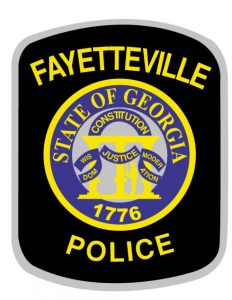As the 21-member Regional Transportation Roundtable inches closer to its final vote on Oct. 15, the preliminary project list is already being sized up for its impact on Fayette County.
The latest projections from state economic forecasters are for Fayette County to contribute some $190 million over the 10-year life of the proposed transportation sales tax, if it is approved by voters.
The question that remains is: will Fayette County get enough bang for its buck to make the tax a worthwhile effort?
The latest list of projects includes some $141.8 million in improvements that would occur in Fayette County alone. Also, the county and its municipalities are forecast to get back another $45 million in discretionary funds that it can spend on any transportation project whether it is local or regional in scope.
That brings the grand total to nearly $187 million, just $3 million short of the county’s expected buy-in for the 10-year tax.
And Fayette commuters stand to get more value from several other transportation projects, chiefly improvements to the interchange of Interstate 85 and Ga. Highway 74, a project located inside the Fairburn city limits, a short distance across the county line.
Fayetteville Mayor Ken Steele, one of the county’s representatives on the roundtable, said Monday that he thinks the preliminary project list, while it can change in coming weeks, is proof that Fayette County “will not be a donor county” in the regional transportation tax.
“There is sufficient return on investment for the people of Fayette County to have something worthwhile to consider,” Steele said, stopping short of endorsing the sales tax. “And we will not be a donor county. We will have an equitable return on our investment should the people elect to pass it.”
Fayette County Commission Chairman Herb Frady, who also is a former mayor of Peachtree City, is the county’s other representative on the roundtable.
The full roundtable has the power to move a host of projects on or off the final list that will be submitted to voters in the referendum.
The referendum will be tallied region-wide, which means it could be voted down here, but if the aggregate of voters in the 10-county region approve it, the tax will be implemented here regardless.
A public input meeting on the regional transportation tax has been set for Tuesday, Sept. 20 from 6-8 p.m. at the county’s Stonewall government complex.
The 10-county referendum was initially scheduled to occur in July, but Gov. Nathan Deal has endorsed a proposal to switch the referendum to November’s general election. Tea Party representatives have decried that decision, saying Deal and the legislature would be “stacking the deck” in favor of the tax because more Democrats will be voting in the November general election than the July primary.
Fayette County Commissioner Steve Brown has been working with Fairburn and state Department of Transportation Officials on potential fixes for the interchange, and some of the solutions are promising, he has said.
Brown has questioned whether the $22.5 million programmed for that intersection is realistic, because he believes the price tag will go much higher.
Fayette’s 10 green-lit projects, at a total of an additional $141.8 million, include the realignment of Ga. Highway 92 and Hood Avenue in Fayetteville, both segments of the East Fayetteville Bypass, and some $2.36 million in cart path connections to the southside of Peachtree City’s industrial park.
Also on the list is the widening of Ga. Highway 85 from Grady Avenue in Fayetteville southward to Bernhard Road in unincorporated Fayette County.
Other projects approved for Fayette County by the executive committee include:
• Widening of Ga. Highway 92 from Jimmie Mayfield Boulevard southward to McBride Road in unincorporated Fayette County;
• Operational improvements on Ga. Hwy. 85 south from Bernhard Road southward to Hwy. 74 south;
• A newly-proposed “connector” between Hwy. 92 and Ga. Highway 138 north to link Fulton and Fayette counties; and
• Operational improvements on Hwy. 92 northward from Hwy. 85 in Fayetteville to Oakley Industrial Boulevard in south Fulton County.
One Peachtree City project that didn’t make the list was the “gateway” cart path bridge over Ga. Highway 54 West that would connect an existing cart path along MacDuff Parkway to the Shoppes at the Village Piazza shopping center. But that project can be funded with money from the city’s local share revenue from the tax, which is projected to be upwards of $10 million.










Leave a Comment
You must be logged in to post a comment.